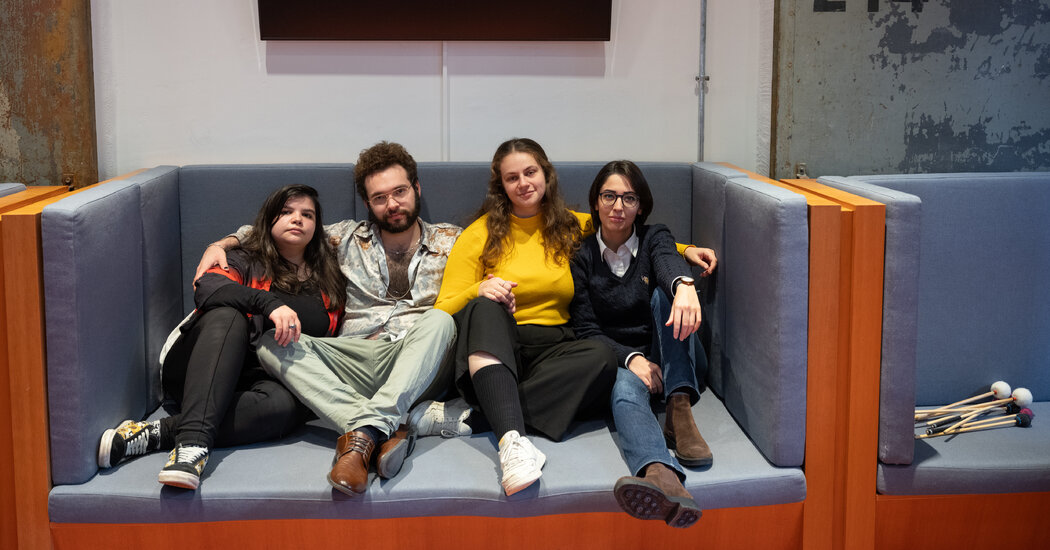In an interview after a recent rehearsal, Mr. Barenboim said he worried the latest war could morph into a “world catastrophe” in the absence of more efforts to bring Israelis and Palestinians together.
“There’s no use saying, ‘We the Jews have suffered more than anybody else,’ or the Palestinians’ saying, ‘We suffered more than all of you,’” he said. “This has been a very difficult century with little rest. I think we have to keep going, and forget our own positions, and get along with a sense of equality.”
The school year at the Barenboim-Said Academy began this month with the usual orientation sessions on Israeli-Palestinian tensions, how to respect differences and ways to see beyond stereotypes.
Then came the deadly Hamas-led attack on southern Israel on Oct. 7 and the ensuing Israeli strikes on Gaza. Many students, their phones buzzing with frantic messages from friends and relatives and displaying images of devastation, were too disturbed to practice their instruments. The school’s leaders, including Regula Rapp, the rector, and Mr. Barenboim’s son, Michael, who serves as dean, brought in counselors fluent in Hebrew and Arabic.
The students made a point of checking in with each other, and they organized meetings to try to work through some of their differences. Unsure of what to say, they sometimes offered only hugs. At one point, they gathered for a start-of-the-semester dinner, sharing homemade dishes: hummus, baba ghanouj, labneh and bulgur salad.
Their conversations were sometimes tense, as musicians from Israel spoke of losing a sense of security and the Palestinians described life under the suffocating blockade Israel has imposed on Gaza for 16 years. The conversations were also deeply personal, with some students sharing stories of losing loved ones during decades of violence in the Middle East.
The students tried to support each other as they faced new difficulties in German society; the authorities banned many pro-Palestinian gatherings, and a synagogue in Berlin was attacked with firebombs. They met at their dorms or went out for beer and cigarettes and talked about how they felt guilty being away from their families.
Roshanak Rafani, 29, a percussionist from Tehran who is a member of the student government, said the tumult in the region could be shattering; she has at times contemplated abandoning her studies.
“Imagine that people are dying, and now I’m just practicing to see which hand I should put here or there,” she said. “We all feel this inner conflict.”
She added that the young musicians had gotten beyond their differences by embracing the idea that “we’re all students, and there is no side now for us here.”
“We’ve all accepted the fact that we cannot really convince each other about many things,” she said. “People talk and raise their voices and yell and cry, but two hours later, they are hugging each other.”
The war has hung over classroom discussions as well.
In a recent philosophy class, the topic was Plato’s allegory of the cave, a metaphor for contemplating the divide between ignorance and enlightenment.

